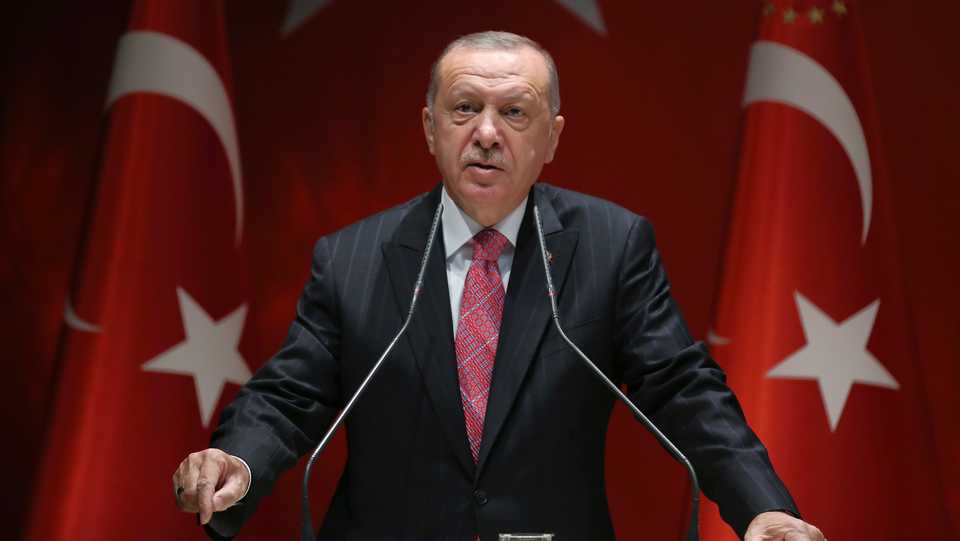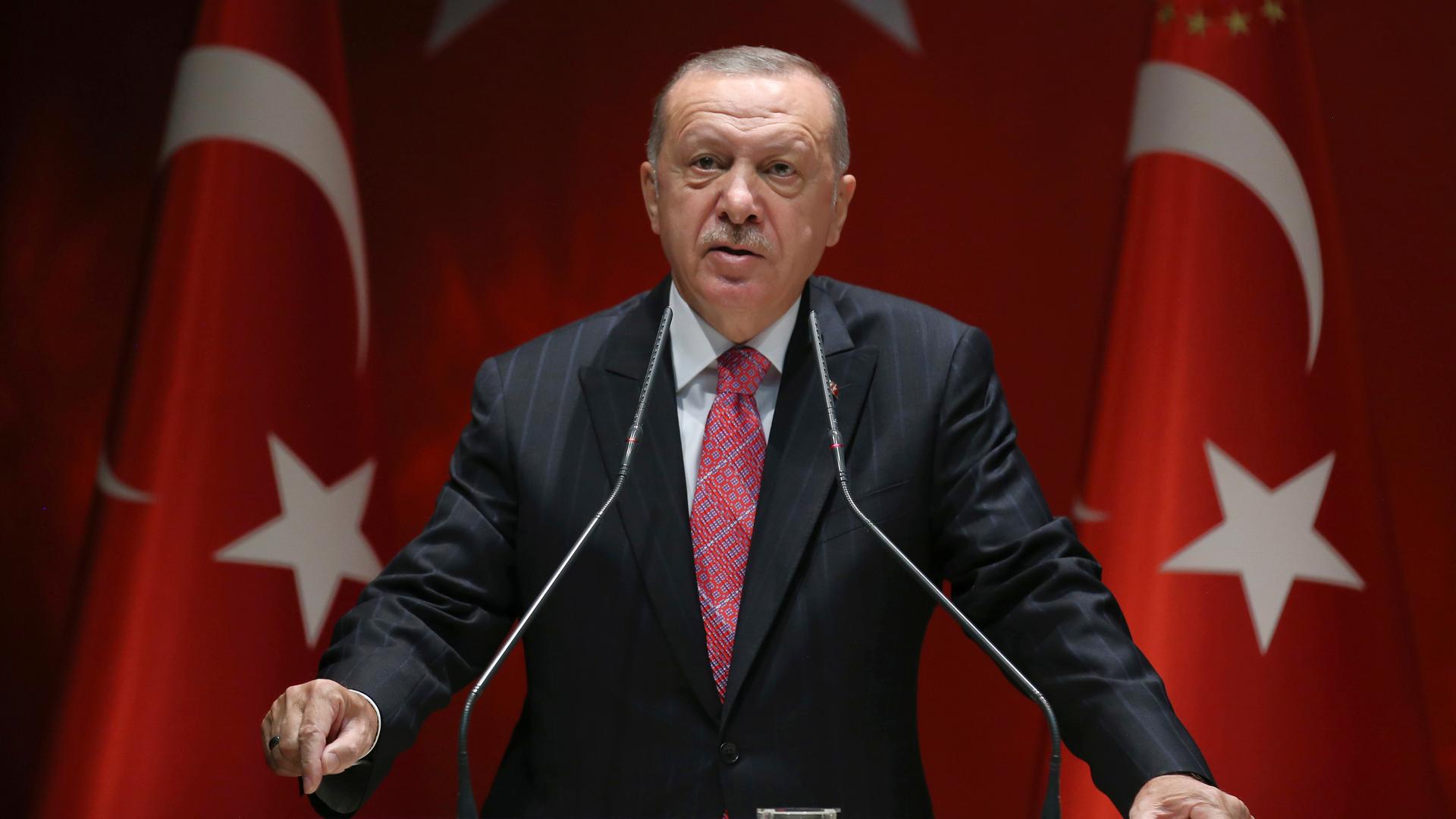
Turkey’s President Recep Tayyip Erdogan has warned that, “any attack on a Turkish vessel engaged in energy exploration along Turkey’s continental shelf in the Eastern Mediterranean will pay dearly”.
“We said before that if you attack our Oruc Reis [drill ship] you will pay a high price, and today they got their first response,” he said, speaking at an event marking the 19th anniversary of the governing Justice and Development (AK) Party, but did not elaborate further.
Erdogan’s remarks come amid growing tensions in the region after Greece sent its warships to the area in the wake of signing a controversial maritime deal with Egypt.
Discussions with Germany
Earlier in the day, President Erdogan and German Chancellor Angela Merkel also discussed regional developments, according to a statement by Turkey’s Communications Directorate.
During the phone call, Erdogan stressed that Turkey believes in solving problems in the Eastern Mediterranean within the framework of international law based on dialogue and equity.
President @RTErdogan spoke by phone with President of the European Council Charles Michel. pic.twitter.com/2B5sAslu2f
— Turkish Presidency (@trpresidency) August 13, 2020
Also speaking on the phone today with European Council President Charles Michel, President Erdogan discussed recent developments in the Eastern Mediterranean, the Communications Directorate announced separately.
The conversations came ahead of Friday’s extraordinary European Union Foreign Affairs Council meeting to address recent Turkish-Greek tensions in the eastern Mediterranean.
Earlier this week, Turkey resumed energy exploration in the region after the Greece-Egypt deal.
Their agreement came only a day after Ankara said it would postpone its oil and gas exploration as a goodwill gesture.
But, after declaring the Greek-Egyptian deal “null and void,” Turkey authorised the Oruc Reis research ship to continue its activities in an area within the country’s continental shelf.
The ship will continue the two-week mission until August 23, along with the ships Cengiz Han and Ataman.
Erdogan said the only solution to the dispute was through dialogue and negotiation and urged Athens to respect Turkey’s rights.
Turkey has consistently opposed Greece’s efforts to declare an exclusive economic zone based on small islands near Turkish shores, violating the interests of Turkey, the country with the longest coastline in the Mediterranean.
READ MORE: Key aspects of Turkey’s Mediterranean mission, explained
Turkey sends EU leaders letters
Meanwhile, on Thursday, Turkish Foreign Minister Mevlut Cavusoglu sent letters to European Union foreign ministers and EU foreign policy chief Josep Borrell about recent developments in the Eastern Mediterranean and Turkey’s approach on the issue.
The letters came ahead of an EU Foreign Relations Council meeting on Friday at Greece’s request.
In his letter, Cavusoglu stressed that Greece and Greek Cypriot Administration’s unilateral steps and alliances excluded Turkey, in spite of calls for collaboration and dialogue by Ankara and the Turkish Republic of Northern Cyprus (TRNC).
He also noted that the so-called maritime agreement between Greece and Egypt, which violates Turkey and Lebanon’s continental shelves, demonstrates Greece’s reluctance to start an honest dialogue with Turkey.
Turkey-EU relations should not suffer further due to whims and fantasies of Greece and Greek Cypriots, he added.
Cavusoglu invited EU countries to stand against any unjust decision that might be taken against Turkey, which has proven its good intentions.
He also held phone talks with some EU foreign ministers, including from Bulgaria, Estonia, Finland, Italy, Lithuania, Hungary and Romania, and with EU foreign policy chief Borrell discussing these issues.
Similar letters are also being sent to UN General Secretary Antonio Guterres, UN Security Council permanent members’ foreign ministers and NATO General Secretary Jens Stoltenberg.
Washington weighs in
The Pentagon said that it’s “concerned” by the “incidents” in the eastern Mediterranean, amid tensions between France and Turkey, urging the NATO allies to find a solution.
Spokesman Jonathan Hoffman told reporters that Paris and Ankara “are both incredibly important NATO allies,” stressing the US “would like to see the tensions lowered.”
“We would like to see them continue to work together and find solutions that do not involve the necessity of having warships, or having aircraft deployed in a less than cooperative environment,” Hoffman said.
The exercise, which includes two French Rafale fighter jets, was conducted off the island of Crete, after France announced on Wednesday that it would beef up military presence in the region.
France’s decision came after President Emmanuel Macron and Greek Prime Minister Kyriakos Mitsotakis had a telephone call to discuss the latest situation in the region.










Discussion about this post